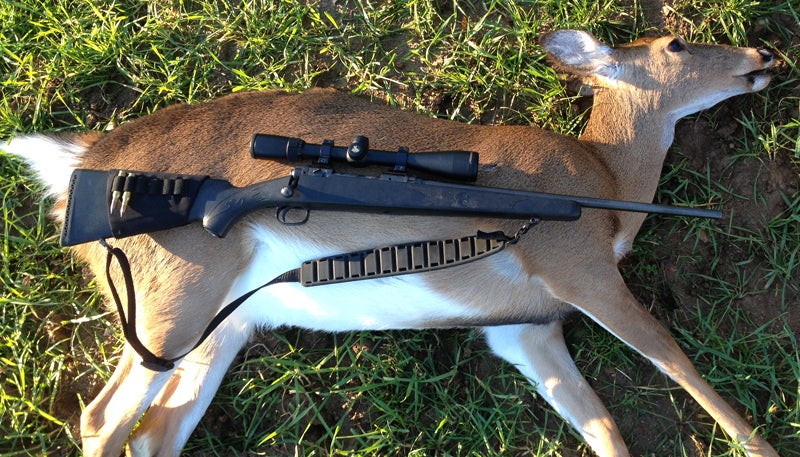Dear Hunters: Stop Apologizing for What You do
Russ Chastain 11.29.18

A recent article by Kevin D. Williamson at National Review examines the current trend — often encouraged and led by so-called hunting advocates — for hunters to hide the results of their hunts, as if we should be ashamed that the end result of hunting is death.
Sports Afield, the venerable outdoors magazine… issued a remarkable plea to its readers: If, by chance, one of them should have the chance to act on one of the handful of brown-bear licenses that had been issued, and if that hunter should be successful — then, for the sake of the hunting community, please don’t say anything about it on social media, and please, please don’t post any pictures.
Other similar warnings from other hunting advocates have become commonplace — not just in regard to the controversial prospect of grizzly hunting but for hunting in general. ‘We need to be very, very careful and intentional about what we post and what are in those posts,’ Adam Janke, the editor of the Journal of Mountain Hunting, told CBC News’s Karen McColl. ‘The problem is the damage some hunting photos — particularly those featuring a dead animal front and center — can do to the public’s perception of hunting,’ McColl wrote.
The problem with that line of argument is that dead animals are necessarily front-and-center when it comes to hunting. That is, ultimately, what hunting is about — and hunters should not apologize for that. Hunting is one of the most ancient of organized human undertakings: Hunting, and not that other thing, may very well be the world’s oldest profession. And whether one thinks of it as sport or ritual — or simply as gathering protein — it is part of an honorable tradition, and a pursuit that can be, at its best, profound.
(emphasis added)
I’ve been saying for decades that the main difference between hunters and non-hunters is that we hunters prefer a DIY approach, while others choose to hire hit men to do their killing… of cows, pigs, chickens, turkeys, fish, and the list goes on.
Is hunting barbaric? In some ways, yes. At its root, hunting is primitive… and there’s nothing wrong with that. There’s nothing like a little blood under the fingernails to remind us of our innate and unavoidable connection to other living things — and the necessity of death. Or as Williamson says:
We live in an antiseptic world, and there is no cure for that quite like gutting a Texas feral hog or roasting a pheasant you shot yourself. And there probably is no single activity that measures the width of the cultural chasm between coastal, urban, progressive America and interior, rural, traditional America. Hunting means guns and blood and non-ironically worn camouflage pants…
As Williamson points out, there’s no question “whether we can responsibly integrate it into our stewardship of natural resources.” After all, that’s been done well for many decades now. No, those who object to hunting are mainly objecting to what they think hunting, and hunters, look like.
The objections to hunting have very little to do with conservation, and, outside of a few animal-rights fanatics, the objections aren’t really moral, either: They’re aesthetic. It’s not so much that the busybodies don’t like hunting as that they don’t like hunters and the mode of life commonly (if not necessarily accurately) associated with them in the insular urban imagination. It is very much of a piece with the strange fact that practically all of the gun-control lobby’s efforts are directed at licensed firearms dealers and the people who do business with them — one of the least criminal demographics in the United States. It’s not about the what, but the who.
The solution? Embrace our hunting heritage and stop trying to hide it. If we feel we have something to hide, how will we ever successfully defend hunting against the onslaught of ignorance? People need to see hunting and hunters, and to understand what we are all about.
And if hunters are going to defend themselves in the theater of political ideas, then they will have to begin by developing the moral confidence to say plainly and directly — even on Twitter — that they have no reason to apologize for what they do or for who they are. In that, they are not alone.
In this, I agree wholeheartedly with Mr. Williamson. Do you?